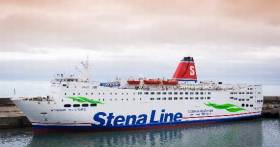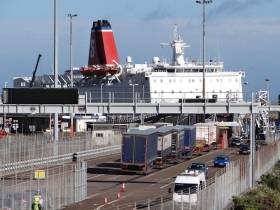Displaying items by tag: Fishguard Port
Incoming Traffic Numbers Drop At Welsh Port of Fishguard
#FerryNews - An estimated 3,000 fewer vehicles travelled from Ireland to Fishguard in south Wales in the first quarter of the year.
UK Government figures seen by the County Echo reveal the number of vehicles travelling from Rosslare to Fishguard fell by 24% – or by around 3,000 vehicles – compared with the corresponding period for 2017.
Stena Line say the fall in the amount of incoming traffic at Fishguard Port for the first quarter of the year was due to essential maintenance.
A Stena Line spokesperson said: “The first quarter of 2018 saw a number of Stena Line vessels go into dry dock for scheduled maintenance, resulting in reduced services at Fishguard Port with an expected impact on our volumes for this period.”
Operator Stena Line Committed to Fishguard Route
#FerryNews- Operator Stena Line continues to remain committed to the Fishguard-Rosslare ferry route, Welsh county councillors have been assured.
Capt Ian Davies, Stena Line’s trade director for the Irish Sea, told councillors Kevin Doolin and Myles Pepper that the company enjoyed a “positive trading position” and “excellent forward bookings” for the summer season.
He was responding to local concerns about the future of Fishguard Port after the County Echo revealed that Stena had scrapped plans for a new £5m linkspan.
The move was seen as a blow to hopes of developing the port by attracting larger vessels.
The two councillors subsequently met with Capt Davies to share in a discussion on Stena’s decision to not proceed with the linkspan project in the short term.
For more on the story from County Echo, click here.






























































